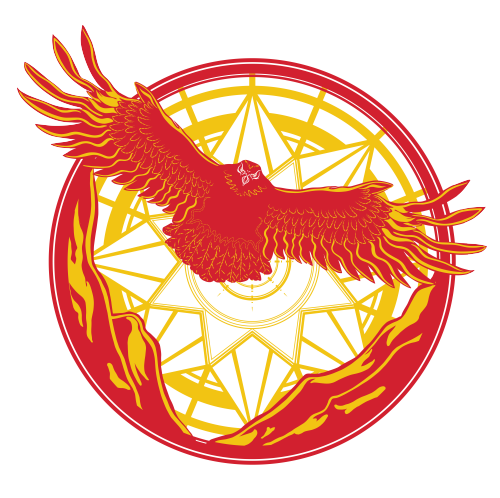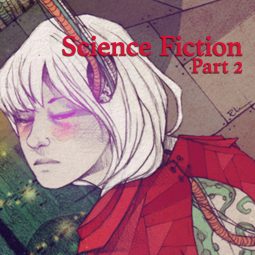INSTRUCTORS:
What does it mean to be human? Are we alone? What wonders or terrors will tomorrow hold?
Looking to purchase an Anytime Audit? Our Lectures are moving! Click HERE to learn all about it.
Join award-winning scholar Dr. Amy H. Sturgis as she explores the ways in which the literature of science fiction over time has asked the question: “What if?” This course will consider the development of the genre from the emergence of the New Wave in the 1960s to today, with an eye toward how the great works and movements within science fiction both reflect the concerns and attitudes of their time and imagine beyond them. Discover why author Ray Bradbury said that science fiction reflects “the history of our civilization birthing itself.”
Note: While not required, familiarity with the themes from Science Fiction, Part I is strongly suggested.
Course Schedule
Week 1 – The New Wave
- “‘Repent, Harlequin!’ Said the Ticktockman” by Harlan Ellison (1965)
- “We Can Remember It For You Wholesale” by Philip K. Dick (1966)
- “Aye, And Gomorrah…” by Samuel R. Delany (1967)
Week 2 – “Literary” Science Fiction?
The Left Hand of Darkness by Ursula K. Le Guin (1969)
Week 3 – Women of Wonder,Cons, and Textual Poachers
- “When It Changed” by Joanna Russ (1972)
- Houston, Houston, Do You Read? by James Tiptree, Jr. (1976)
- “Speech Sounds” by Octavia Butler (1983)
Week 4 – The Rise of Cyberpunk
Neuromancer by William Gibson (1984)
Week 5 – Science Fiction Goes to War
Ender’s Game by Orson Scott Card (1986)
Week 6 – Steampunk and Space Opera
- Lord Kelvin’s Machine by James P. Blaylock (the 1985 novelette version, not the 1992 novel)
- The Mountains of Mourning by Lois McMaster Bujold (1989)
Week 7 – Television, Film, and the Question of Time
The Doomsday Book by Connie Willis (1992)
Week 8 – The Return of “Hard Science”
Red Mars by Kim Stanley Robinson (1994)
Week 9 – First Contacts, Past and Future
- The Sparrow by Mary Doria Russell (1996)
- “The Undiscovered” by William Sanders (1997)
Week 10 – Intertextuality, Transformations, and Reimaginings
- A Study in Scarlet, Part 1 (1887), “The Final Problem” (1893), and “The Adventure of the Empty House” (1894) by Arthur Conan Doyle
- “The Call of Cthulhu” by H.P. Lovecraft (1928)
- A Study in Emerald by Neil Gaiman (2003)
Week 11 – The Maturity of Young Adult Science Fiction
Genesis by Bernard Beckett (2006)
Week 12 – The Future of the Genre
- “Exhalation” by Ted Chaing (2008)
- “Bridesicle” by Will McIntosh (2009)
- “If You Were A Dinosaur, My Love” by Rachel Swirsky (2013)
Required Texts
The Amazon links are provided for convenience only, and we encourage students to purchase texts wherever they wish.
- The Wesleyan Anthology of Science Fiction
- The Left Hand of Darkness – Ursula K. Le Guin
- Neuromancer – William Gibson
- Ender’s Game – Orson Scott Card
- The Doomsday Book – Connie Willis
- Red Mars – Kim Stanley Robinson
- The Sparrow – Mary Doria Russell
- Genesis – Bernard Beckett
Additional titles will be made available in the final syllabus.
Course History
This course has been offered in the following semesters.
| Semester | Preceptor(s) |
|---|---|
| Fall 2018 | Dr. Maggie Parke |
| Spring 2015 | Jessica O’Brien |
| Spring 2013 | Jessica O’Brien |
Course Artwork
Course artwork adapted from an original illustration by Elia Mervi. Used with permission. All rights reserved.



